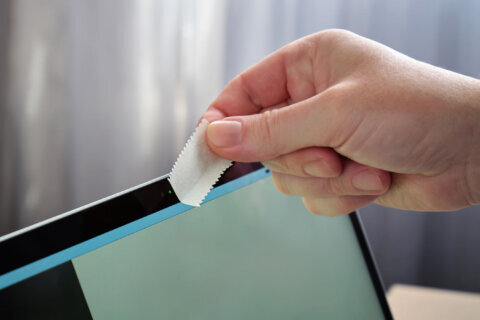Q: My smartphone seems to run hot all the time, so is it true that a case can cause overheating?
A: Our smartphones have become a vital device in our lives and protecting these expensive little computers with a case has become an instinctive approach, but it may not be totally necessary.
Apple recently chimed in with a video about not using cases on their latest phones, despite offering to sell you a simple one for $50 on their website.
Construction & Material Variables
Both the construction of your smartphone and the material used to make the case play key roles in whether it can lead to overheating.
If you’re regularly getting a warning from your smartphone that it’s running hot, digging a litter deeper into the type of case you are using would be prudent.
Age Of Your Smartphone
The older your smartphone is, the more likely it will run a little hotter both because of its time in use and less sophisticated materials used to build it.
Despite the few moving parts on a smartphone, the electronic components do degrade over time which generally results in circuitry that has increased resistance to electrical flows.
This increase in resistance will increase the power usage, which both drains your battery faster and generates more heat.
There are no fans in smartphones, so they dissipate their heat through passive means through the shell of the device and metal heat conductors inside near components that tend to generate heat.
This passive dissipation relies on air to help carry the heat away from the device. Technically speaking, any case that impedes airflow will impact the operating temperature.
The Material Matters
Some materials insulate the phone more than others, but, it shouldn’t be the primary reason your phone is running hot.
Most smartphone cases are made from various plastics, rubber, silicone, or in some cases, metal with the primary focus of protecting the device when it gets dropped.
Aluminum, for instance, is a great protector that is also a good conductor of heat so it can help dissipate heat from your smartphone. The major downside to aluminum (or any metal material) is that it can quickly become the source of excess heat if it’s left in direct sunlight.
Most silicon/rubber/polyurethane cases provide ample heat dissipation for smartphones that are functioning properly. It’s possible that your phone may have another issue that is being made worse by your case.
If you routinely put your phone in your clothing pockets, your added body heat is also going to play a factor.
Ambient Temperatures
Another huge variable is the ambient temperature while you’re using your smartphone. If you live in a hotter climate with high ambient temperatures, your choice of cases will be more important than those that live in cooler climates.
Test With and Without
If you suspect that your case is causing a heat problem, try going a few days without the case to see if there’s a noticeable difference in both the warmth and battery life. If so, you may want to either purchase a case that specifically addresses heat dissipation or go without one altogether.
Ken Colburn is founder and CEO of Data Doctors Computer Services. Ask any tech question on Facebook or Twitter.







